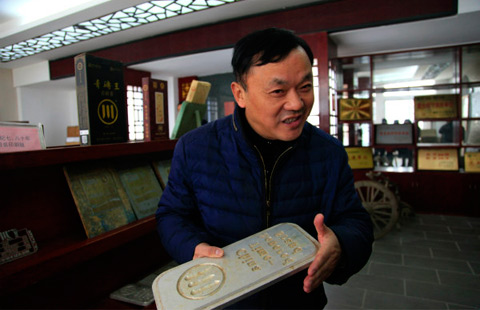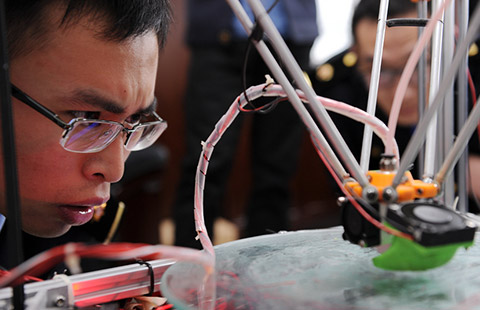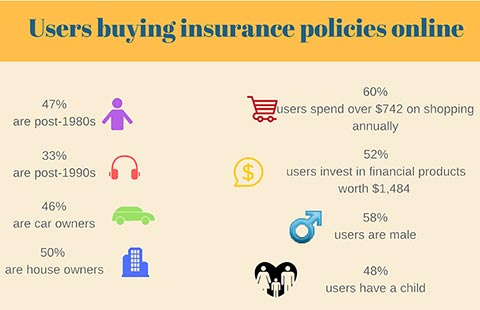Emission limits enhanced to cut pollution
Policy will require 6 heavy polluting industries to meet global standards
Six heavy polluting industries in 47 cities will gradually comply with special international emission limits on airborne pollutants, starting on March 1, a recent ministry-level environmental meeting heard.
Experts expect the move to have great impact on the affected industries: thermal power, iron and steel, petrochemical, cement, non-ferrous metal and chemical.
"The annual amount of smoke and dust from these six industries contributes more than 70 percent of total emissions," Chai Fahe, vice-president of the Chinese Research Academy of Environmental Sciences, told China Daily.
He said the special emission limits will all reach internationally advanced levels.
"Take the dust emitted by coal burning boilers in thermal power plants as an example. The normal standard of dust concentration is 30 milligrams per cubic meter. But the special limit to be applied by the 47 cities is only 20 mg per cu m, which is the strictest in the world."
"The new policy will have the biggest influence on thermal power generation companies that have to invest a lot of money in upgrading the current environmental protection equipment and purchasing new ones for production," said Dai Bing, director of the coal industry information department at JYD Online Corp, a bulk commodity consultancy in Beijing.
He said costs for those companies will grow, but electricity prices won't increase, which will bring challenges to those companies.
In addition, it will be even harder to get approval for new projects within the six industries because of the stricter emission rules, said Zhang Tieshan, an analyst from steel information provider Mysteel.com. The steel industry, which is also required to limit emissions, has been making efforts to reduce pollution for years.
"Moreover, since the Chinese steel industry has been suffering severely from rising costs and shrinking demand in recent years, it will have financial difficulties purchasing environmental protection equipment, considering the huge losses last year," he said.
In terms of the petrochemical industry, Dai said it has been accused of causing air pollution in cities for a long time. He said they have been well prepared and will continue to increase their efforts in the sector.
"It is inevitable the new rule will be carried out because air pollution has become a very important issue in Chinese cities," said an industrial insider who works at one of the top-five power generation groups and declined to be named. "The coal-fired power plants are definitely involved and responsible for the pollution."
The 47 cities, covering 19 provinces and municipalities, correspond with the most heavily polluted regions highlighted in the Environmental Protection Ministry's Five-Year Plan (2011-15) for Air Pollution Control released in December.
"Those regions are the most densely populated, contributing to more than 70 percent of the total economy. But 82 percent of the cities within the region have air quality below the national standard," said Zhao Hualin, director of the ministry's pollution prevention department.
But the impact may not be all negative.
The anonymous insider said that although the costs for power companies will rise, it will be beneficial for the whole industry to become more integrated because a number of small-scale power plants that cannot meet the new standards will be eliminated from the industry.
"The key is ensuring the implementation of the policy," he said.
In the Environmental Protection Ministry's plan, exhaust from new projects in all six industries, and current projects under construction for the thermal power, iron and steel, and the petrochemical industry are required to meet the new limits.
According to the ministry's timetable, new projects in these regions' thermal power and iron industries will start to follow the special limit on March 1, current projects in the thermal power industry on July 1, 2014, and current projects in the iron industry on Jan 1, 2015.
"There has been no fixed timetable for the other industries, because their limits are still being set," said Chai from the Chinese Research Academy of Environmental Sciences.
Contact the writers at wuwencong@chinadaily.com.cn and dujuan@chinadaily.com.cn























